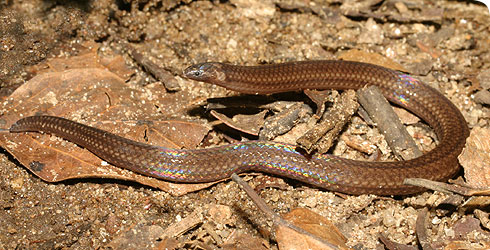Xylophis captaini (Captain’s wood snake)
Xylophis captaini, or Captain’s wood snake, is a small, brownish but iridescent snake, about 6-15cm long. Its short tail accounts for less than 12% of this.
It is 1 of only 3 species in a genus of relatively small and inconspicuous snakes endemic (native) to the Western Ghats region of peninsular India.
The snake has been seen to 'play dead' when unearthed in the daytime.
Species detail
X. captaini was only described in 2007 and there is still much to learn about it.
-

Taxonomy
Differing in size, colour pattern, scale details, X. captaini can be readily distinguished from the 2 other species currently classified in the genus Xylophis. Find out more.
-

Habitat and ecology
Xylophis captaini is mostly encountered in plantations and gardens. Its ecology is still relatively unknown, but it perhaps feeds in the soil it hides in. Learn more.
-

Behaviour
During the daytime X. captaini tends to remain hidden under surface soil and litter. Find out more about its behaviour.
-

Conservation
Knowledge of the conservation status of this species is poor as much is still unknown about its population biology and reproduction.
Distribution
Xylophis captaini is known only from elevations of less than 300m, between the western slopes of the Western Ghats mountains and the west coast of southernmost peninsular India (the state of Kerala).
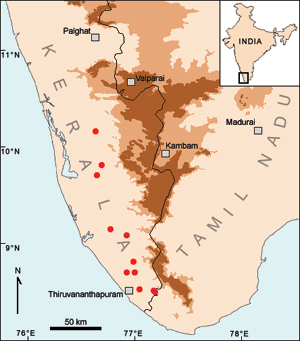
Map of the southwestern end of the Indian peninsular and the Western Ghats showing the distribution of Xylophis captaini (red dots), major elevational zones (pale brown = below 300m, mid-brown = 300-1000m, dark brown = above 1000m) and towns (grey squares). The locality data are those reported by Gower & Winkler (2007).
Images
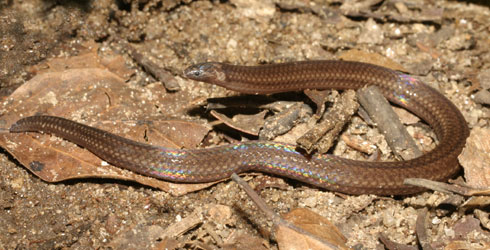
Xylophis captaini © David Gower, Natural History Museum
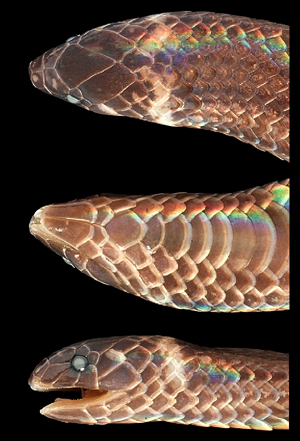
Dorsal, ventral and lateral views of the head of a dead specimen of Xylophis captaini (image: Harry Taylor, Natural History Museum).
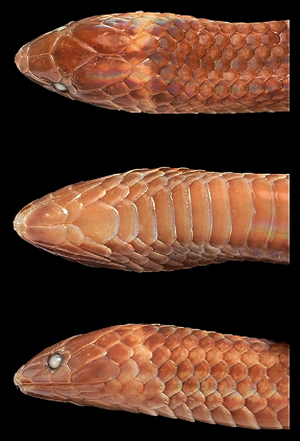
Dorsal, ventral and lateral views of the head of a dead specimen of Xylophis stenorhynchus (images: Harry Taylor, Natural History Museum).
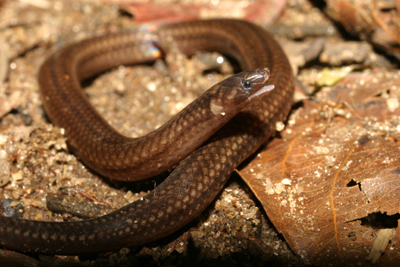
Xylophis captaini (image: David Gower, Natural History Museum)
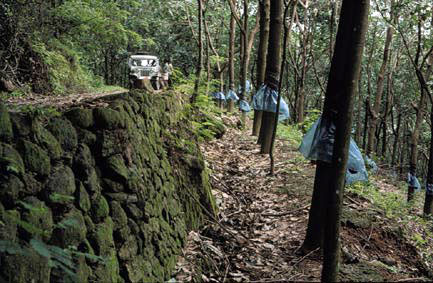
A rubber plantation where Xylophis captaini occurs (David Gower, Natural History Museum).
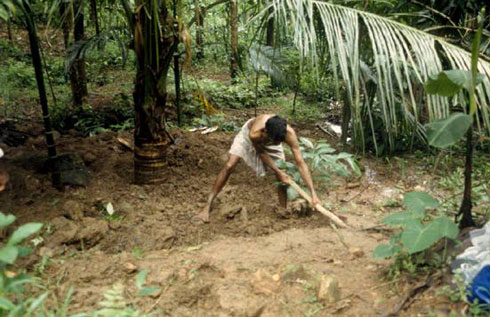
A mixed garden where Xylophis captaini occurs (David Gower, Natural History Museum).
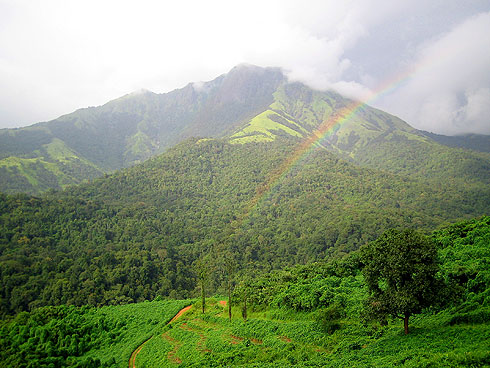
The forests of the Western Ghats mountains in India, where X. capitaini is found, are seriously threatened (image: David Gower, Natural History Museum).
About the author
Toolbox
Reference
Gower, DJ & Winkler, JD (2007) Taxonomy of the Indian snake Xylophis Beddome (Serpentes: Caenophidia), with description of a new species. Hamadryad 31: 315-329.
